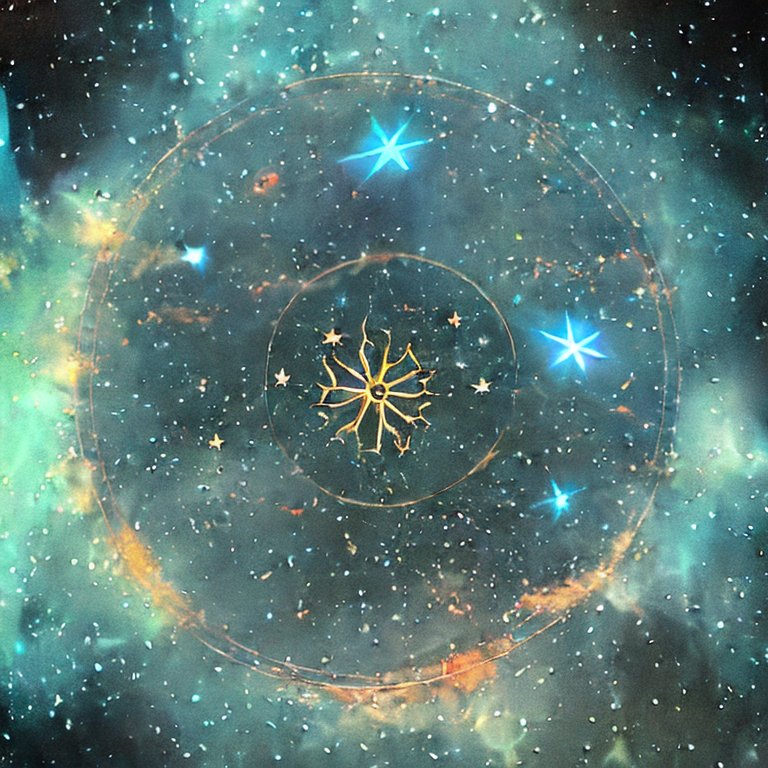The ability to reuse electronics for new purposes until they stop working to the point that they’re irreparable or otherwise no longer fit for purpose. You can do a LOT with old computers and hardware, and you can often resurrect “broken” things relatively easily, if you can find parts. However, sometimes you do have to weigh this against the energy costs some old stuff has relative to new stuff if you don’t have direct access to your own renewables.
My entire home network infrastructure is built out of old, repurposed, and/or second-hand equipment. My router is a broken netbook running OPNSense, my switch is an older Cisco small business switch. I picked up a used couple year old used consumer router and put OpenWRT on it and run it as a standalone access point. It supports Wifi 6, and I expect it to last at least a decade. The only thing I bought new was my modem a few years ago, because I refuse to rent from the ISP.
More directly relevant though is that I’m using an old low power (formerly) Windows 8 tablet from 2014 to run Home Assistant, which I’m using to optimize my energy usage bit by bit. It’s a slow process because I don’t want to run out and buy new stuff until existing stuff stops working, but I’m slowly expanding my network to observe my energy usage and put in place automation to reduce usage where it makes no sense to waste energy.
One thing I’d like to expand into is actually learning to solder and picking up some basic electrical engineering skills. So far this has mainly been hobbyist, replacing only parts with connectors. I’d like to be able to do even more.
- for you – jugaad
- for anyone else interested, it’s really easy to get started – Your Old PC is Your New Server
for you – jugaad
Hell yeah. This kind of stuff is my lifeblood. Never heard this word before, thank you!
Hey there, I just wanted to say that I really like this comment. I used to work a tech-centric position at an office type job and the amount of electronic waste there was insane. Seeing a huge dumpster full of old computer parts was quite depressing. Good on you for taking matters into your own hands. I would love to do something like that if I am ever in that sort of position again. Good luck!
Ironically enough, I started at a young age because of that electronic waste. My father worked in IT too and skimmed some stuff out of the waste pile to take home and used it to get me started on my own journey. We weren’t very wealthy and couldn’t afford many new parts, so much of my childhood was me learning how to make the most of whatever I could get my hands on, and I just carried that forward as an adult.
This reminds me, I’ve got smart things (because it was the only thing I knew about 6 years ago when I built it) and I definitely need to look into some motion sensors for a light that has really shitty access and basically is just on 24/7. It’s very difficult to run a second switch and that annoys me.
I sell car parts, not really all that solarpunk as the industry currently exists, but automobiles are tools, and people with more know-how than me could figure out how to kludge together something solarpunkish from car parts.
deleted by creator
I did a few bio-inventory surveys for a land trust back home. One was an old sand pit that was slowly growing back to a somewhat natural state. I spent hours just looking around the place seeing what was living or growing there.
A few spots were completely barren but the majority of it was recovering even with minimal intervention. Amazing stuff. Wish I could see it now.
throw some fungi into the mix to really see miracles – Paul Stamets on mycoremediation
Some spots will never (or extremely slowly) revgetate without first establishing geotechnical stability. These would be areas such as pit walls, or other areas where the sand is at an angle of repose. They have a really hard time in areas such as beaches (not a mining example but still valid) where the sands shift too much for plants to establish and the nutrients aren’t there.
I remember submitting a ‘soil sample’ to the coop for nutrient analysis even though I knew it was pretty much just straight sand. Absolutely nothing growing in it even though they had tried growing trees in it. They took my word for it but just wanted it on file for the plot’s portfolio.
The coop sent the results back with an analysis that basically said ‘its sand and has pretty much no nutrients’.
deleted by creator
Subscribed. Definitely an interest of mine. My background in University was wetland ecology, so wetland remediation is more what I know.
California’s favorite invasive, ice plant, will still make the attempt …
I’m a cannabis grower.
Back when cannabis was a bit less than legal in my area, I grew indoors and learned how to grow a large crop in very, very tiny spaces. However, as was standard back then for covert growers, it was incredibly resource intensive.
Now that it is fully legalized here, I currently work in greenhouses on a large piece of land. I’ve now learned how to grow much more with so much less.
If the need ever arose, I’m confident that I could grow a very large amount of food, in very tight quarters, with minimal inputs.
I was once tasked with designing automated greenhouses that were supposed to be very profitable, which means that they would use little energy and little labor.
The project did not go forward but I still do think that small units of automated, local, efficient food production is the future. I don’t think single-house size but maybe a dozen households could share one decently sized greenhouse and grow most of their plant-based needs.
Ive work for a company that develops irrigation equipment solely on water and solarpower. Also we work with smallholder farmere. I am able to learn also how smallholder farmers grow all different foods. To pump with waterpower and solarpower is a bit finiky compared with a fuel pump. We work towards removing the finiky and it is a rewarding goal and the work is very interesting.
That‘s hard, I currently work in SAP Basis (tech side) and I‘m not sure. In a solarpunk world, I feel like my job wouldn‘t exist, as it‘s really focused on the needs of “big business” and needs a ton of energy to run this whole system.
I‘ve been thinking though, things like supply chain, material management, etc seem like they might be useful to have open source for alternative organisations too and I found this: https://erpnext.com/comparisons/sap-alternative though idk how good any of this is truly and I‘m not sure how it would serve solarpunk, I‘m still too new to all this and only work with a small part of it, though it does seem to be the brain of business.
Before that I worked as a System Engineer, for a fossil fuel company… there I learned that the interests of such a company and anyone who wants nature to survive are incompatible, as they were greenwashing things in marketing while lobbying against any change and toasting to their profits behind closed doors. It made me feel like a monster.
Sorry if none of this is useful, I‘m mostly here to learn more about solarpunk from you guys cause I‘m so negative from my experiences and I want to change that towards a more hopeful perspective.
I can sympathize with you.
My industry is also anti-solarpunk (television and live events) but the skills I’ve learned along the way would translate well. I use the term “guerrilla TV” a lot because we really do swarm into any location and make it functional for our needs. It would just be neat if live entertainment could be beneficial and green instead of capitalism-driven and wasteful.
I think, even if we’re not dealing with “big business”, some form of “load balancing” of resources will still be needed – instead of one corporation selling to another corporation, it’s going to a matter of coordinating the sharing of resources between a massive network of small communities (a “federation” if you will) – ex. getting water and fresh food out to a desert community that has an over-supply of solar power
Agreed, just not SAP probably, as this thing is closed source, expensive and seems really focused on the needs of bigger business concerning government regulations and finance etc.
A federated ERP for communities, sounds cool I never thought of it that way, but that would be useful for sure.
There are some interesting projects around open-source ERPs like Odoo or Erpnext in regards to shared supply chains and social security payments etc… Small steps only, but some lessons can be probably learned from how big companies organise their logistics.
I learned efficiency in heat transfer by opposite current flows. For example, a heat trade between outside air coming in, and inside air blowing out is most efficient if the highest temperature has the exchanger with the coldest temperature, and second and third stages of exchange always move so that the last exchanger have both sides closest in temperature.
If you want to squeeze the most that you can in a passive system, this principle will help.
Don’t forget, in insulating, you want the least transfer, so you go in the opposite direction.
I don’t know if I have an answer to this yet, but I wanted to comment to say this is a great question, OP. Thanks for asking it; there’s some really interesting stuff in the comments
Agreed. It also leads to some self reflection when the answer essentially amounts to: “Nothing”. As an automotive software engineer, I can’t say that I learned anything I can practice myself in daily life in the solarpunk spirit. But it did get me thinking whether I could try and further some skills I acquired to that aim. Thanks OP!
My self reflection actually led me to a legit good answer. I’m a biochemist and my developing research interest is in how we can coordinate and integrate “big data” methodologies and insights; one of the hype trains that annoys me is the idea that AI means we’re on the cusp of “agnostic science”, which roughly means “yay, let’s take the biased humans out of the science entirely and have MAXIMUM OBJECTIVITY”. So effectively, it’s looking like my career is shaping up to be “professional killjoy” — trying to derail scientific hype trains before too many board.
It’s hard to imagine how that could help me in a Solarpunk society, but it’s easier to frame it as “how can Solarpunk ideas help me in this quest?” because there’s actually loads of that.
A thing I love about Solarpunk after all is that it isn’t anti-science: Genetic editing is cool and awesome, but also biodiversity and ecosystems are super important; AI protein folding algorithms like AlphaFold are mindbogglingly good, but they’re most useful when we take a slice of humble pie and understand how much we have left to learn; Objectivity is a great scientific ideal, but also we need to recognise that in practice, we can’t extricate science from people and politics, and we should instead embrace the uniqueness of perspectives, which all have something to add to science.
These themes feel like Solarpunk vibes to me, and given that Solarpunk is still developing as an aesthetic, ideology and cultural movement, it’s a useful thing to ponder.
Hehe. I feel like I have little to contribute to solarpunk in this moment of my life, but I have a way with questions. I’m glad it provoked a interesting discussion.
I know a fair amount about infrastructure. There’s A LOT of stuff under the ground you probably never even think about.
spooky! what kind of stuff?
Water, sanitary sewer, storm sewer, chiller lines, cable, phone, fiber, natural gas, oil, electric, sprinkler systems, under ground vaults for most of these things as well. Some cities have underground tunnels for things like storm over flow, communications, electric and various other things.
I’m answering this from a parking lot and from here I can see, street lights, parking lot lights, storm sewer, sanitary, water, bunch of electric coming down a pole as well as cable and phone. I have to assume there’s gas as well.
wow, people really underestimate the ground! same with plants too, most of their life goes on below our feet…
Very very true! And don’t under estimate water either. I just watched a water main move an asphalt street up 3 inches today.
I’m a repair engineer for lab equipment. There’s not specific fact that comes to mind, but I find myself thinking about gratifying it is that the job itself fits perfectly well into a solarpunk future.
You could remove the monetary demands of capitalism and in a day-to-day sense my job would still make sense. I spend my time driving to various job sites and labs where they need help setting up robotics and sample analyzers and things.
I think the main thing it illustrates is how fun and productive a solarpunk lifestyle can be. It reminds me of how my mom paid her way through college as a bike courier in DC (right during the Watergate years). I love jobs where you have to go on quests.
I work in a tech role for a big tech company, so at first glance, not much. I like to believe that I’m good at planning stuff and figuring out how many hours by how many people it should take, which is a good skill for all kinds of issues.
















